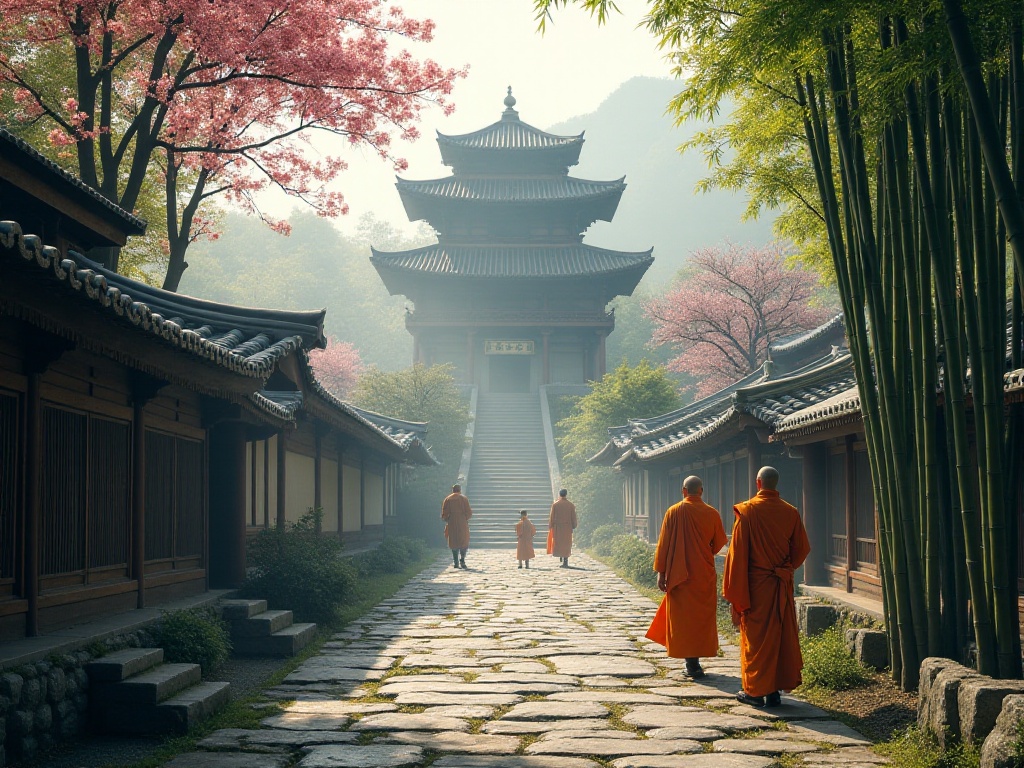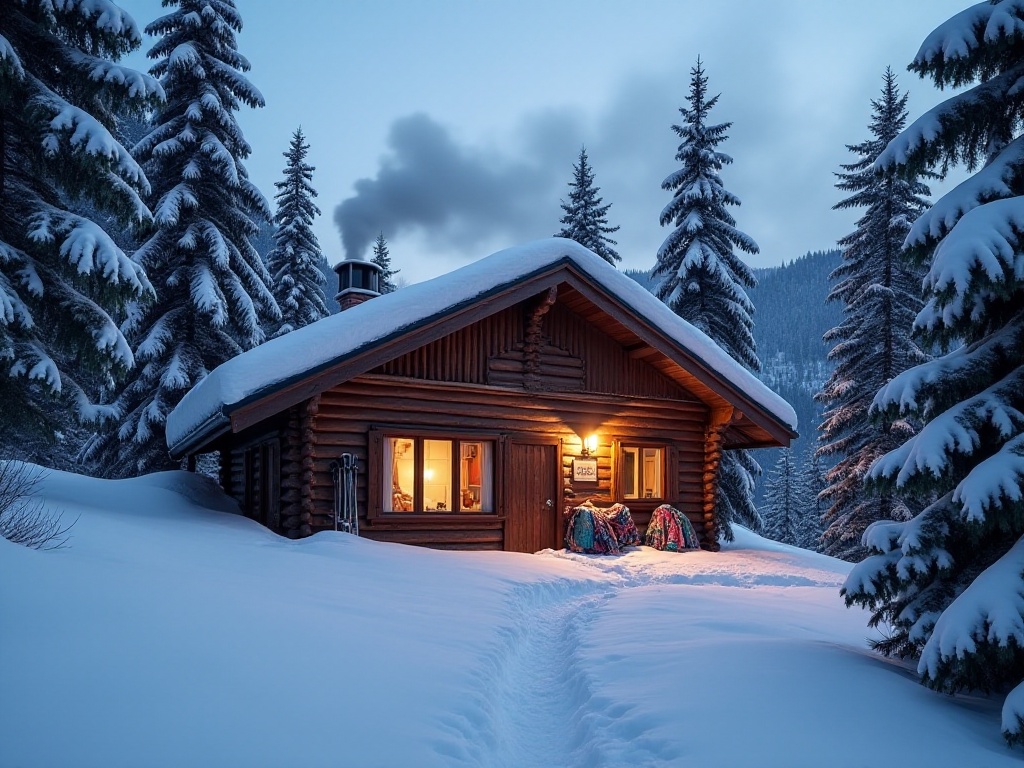
Opening Thoughts
Recently, I've been obsessively discovering rural tourism destinations on Xiaohongshu and found this topic incredibly trending. Today's rural tourism has completely transformed the traditional "farmhouse entertainment" model, going beyond simply "eating farm meals and staying in farmhouses." I recently experienced a popular boutique homestay in Moganshan, Zhejiang, and it was amazing! The entire design embraced modern Chinese aesthetics, the outdoor terrace was exquisitely decorated, and the afternoon tea was almost too beautiful to eat. Just posting it on social media garnered a flood of envious emoji responses, which made me realize: rural tourism has truly undergone an elegant transformation.
What's Changed and What Hasn't
Thinking back to childhood weekends when I followed my parents to suburban farmhouses, rural tourism was indeed incredibly simple then. It was nothing more than arriving at the place, eating free-range chicken, picking seasonal fruits, and maybe fishing. If lucky, you might pull some radishes from the vegetable garden. But honestly, the joy back then was genuine and pure.
Looking at Moganshan now, the variety of activities is overwhelming. Rows of tents line the camping grounds with evening bonfires; cafes waft with rich aromas, offering a unique experience of hand-brewed coffee in the mountains; pottery studios let you experience clay molding; baking classes teach you to make creative desserts with local ingredients; weekend creative markets bustle with artisans bringing their masterful works, making it impossible to leave.
Though the form has changed, some things remain constant. Like the comfort of taking a nature walk, the emotion of watching the sunset, the familiar scent of soil. This yearning for nature and attachment to rural lands might be the most precious core of rural tourism. As I pondered on the terrace in Moganshan: no matter how refined the environment becomes, what truly touches people's hearts is that sense of ease and peace when connecting with nature.
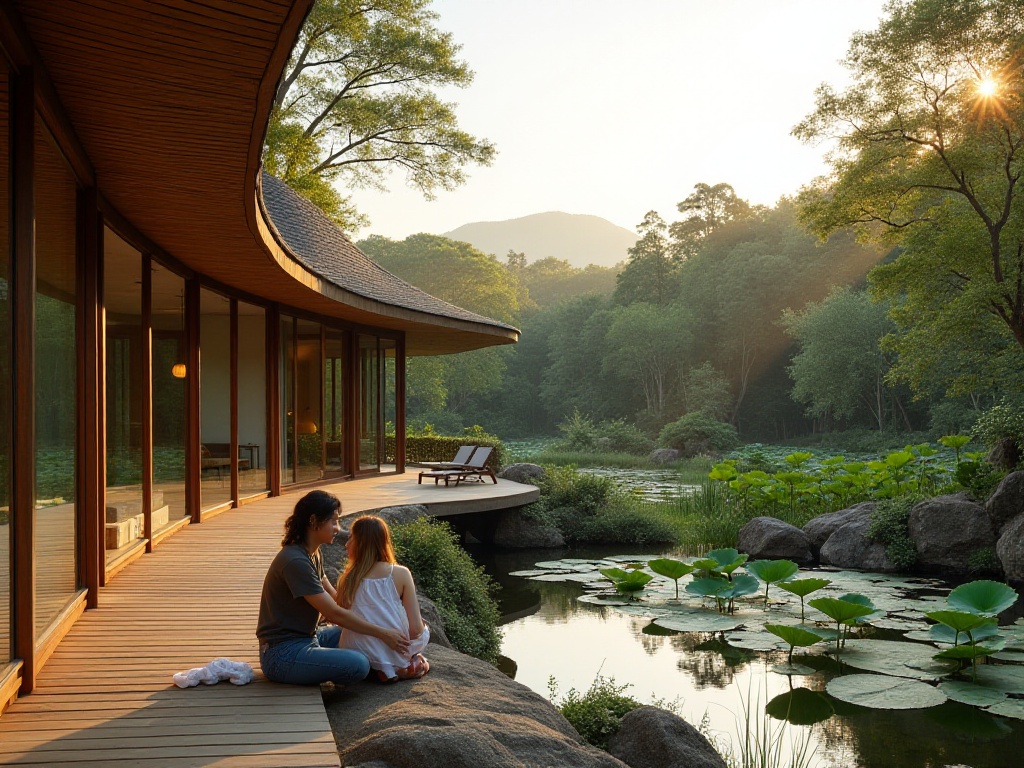
New Ways to Play
How fun is rural tourism now? Let me explain in detail.
First, let's talk about the accommodation experience - today's rural homestays are simply surprise generators. Last summer, I spent three days at a homestay in Dali, Yunnan, and just watching the sunrise offered new experiences. You could lie in a viewing bathtub, letting warm water envelope you while watching the sun rise from behind Cangshan Mountain; curl up in a hammock on the terrace, wrapped in a blanket, watching morning light flood Erhai Lake; or even open the curtains in a tent to watch the entire starry sky gradually give way to dawn.
Each room has its own characteristics: some have built-in fireplaces for roasting sweet potatoes at night; some are equipped with astronomical telescopes for stargazing; others have private gardens filled with local flowers. The designers' attention to detail reflects respect for and creative interpretation of local culture.
Regarding dining, rural cuisine today is truly eye-opening. Farm dishes are no longer simple stir-fries but have evolved into refined creative cuisine. The rapeseed flower-themed restaurant I visited recently in Wuyuan, Jiangxi, absolutely amazed me. The chef prepared the most common rapeseed flowers to Michelin standards: flower petals battered and fried to golden crispiness; stems julienned and pickled into refreshing appetizers; even the tender leaves were creatively used to wrap glutinous rice into unique dim sum.
Not just main meals, but even tea breaks are ingenious. Afternoon tea is served in locally made ceramics, and snacks feature seasonal ingredients: wild vegetable pastries in spring, fruit mousses in summer, chestnut desserts in autumn, and warming sweet soups in winter. This combination of rural characteristics with modern food culture reveals the endless possibilities of rural cuisine.
Most exciting is the richness of experiential activities. Last year in a village at the foot of Huangshan in Anhui, I participated in a tea ceremony experience. It wasn't just tea tasting but learning the tea-making craft step by step with tea farmers, from picking tea in the morning mountains, learning kneading techniques in the afternoon tea room, to tasting self-made tea in the evening. This immersive experience gave me a whole new understanding of tea culture.
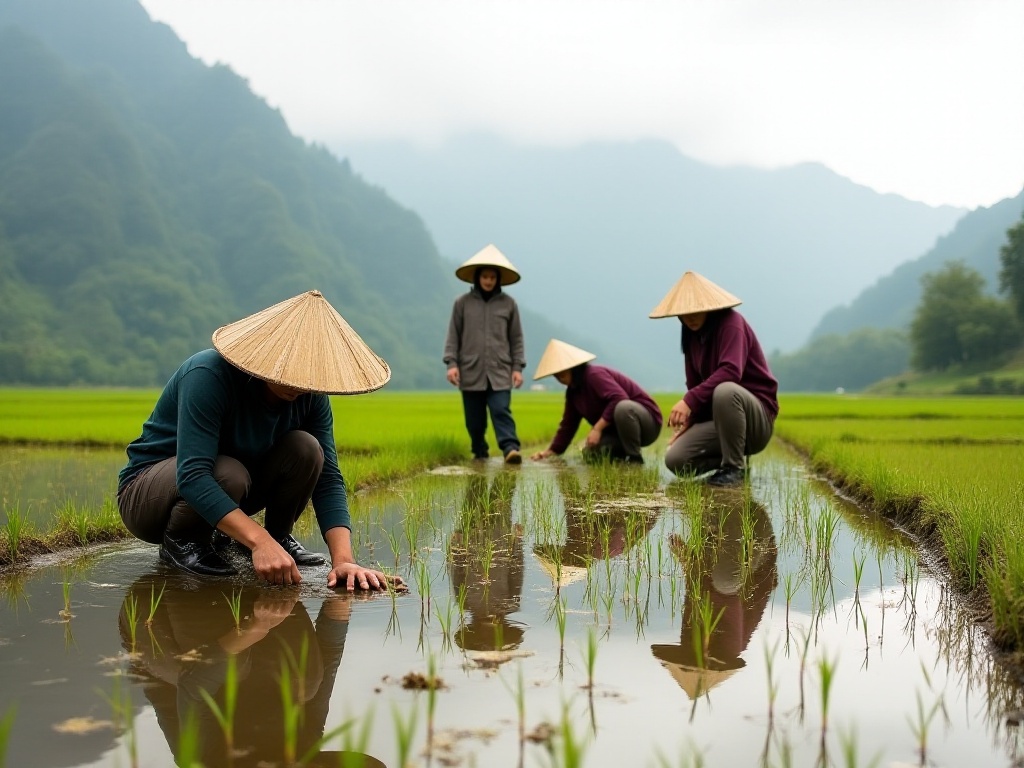
What the Numbers Say
Looking at specific data, rural tourism's development momentum is truly amazing. In 2023, national rural tourism total revenue reached 1.9 trillion yuan, a 35% year-over-year increase. These numbers reflect the industry's vigorous development.
Notably, post-90s and post-95s generations have become the main consumers of rural tourism, accounting for over 60%. This data isn't surprising at all. As city-born and raised youth, our generation has a unique yearning for rural areas. What we desire isn't traditional "farmhouse entertainment" but a comprehensive tourism experience that allows us to experience slow living, connect with nature, and explore culture.
This demand directly reflects in consumption levels. Young people now typically spend 800-1,200 yuan per rural tourism trip, nearly 4 times higher than traditional farmhouse entertainment era. This includes boutique homestay accommodation, special cuisine experiences, cultural creative product purchases, and more. Behind the high consumption is young people's pursuit of high-quality rural tourism experiences.
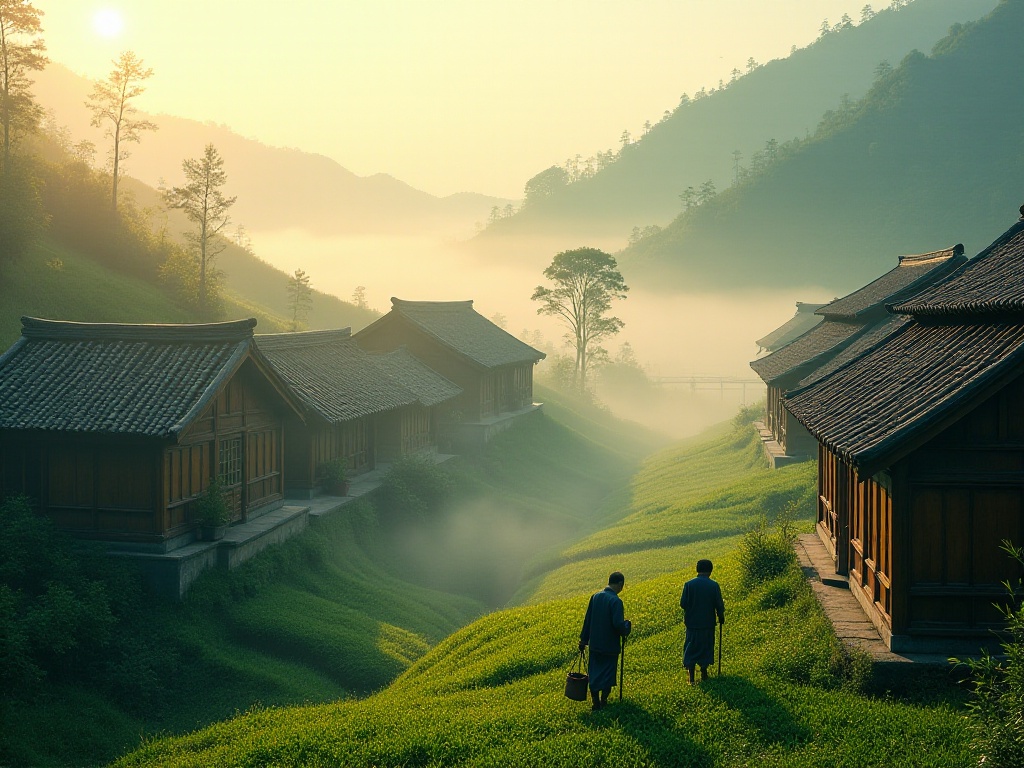
Promising Future
Looking ahead, rural tourism's development blueprint is exciting. I think future rural tourism might continue to strengthen in these areas:
First is the depth of cultural experience. Many places have begun to deeply explore local cultural resources, transforming intangible cultural heritage and folk customs into unique tourism experiences. Take the Miao embroidery workshop I visited in Guizhou last year - you could not only appreciate traditional Miao craftsmanship up close but also learn basic embroidery techniques under master guidance. The workshop specially designed simple Miao embroidery patterns allowing tourists to complete a small work in half a day. This educational entertainment approach opens new possibilities for traditional cultural inheritance.
Next is technology empowerment. Many rural scenic areas now emphasize smart tourism construction. Electronic guide systems let you learn about attractions' stories anytime; VR technology lets you experience agricultural culture's past and present; smart parking systems eliminate parking worries. In Hongcun, Anhui, I experienced an excellent AR guide program that showed historical buildings' appearances across different periods through your phone, along with interesting historical stories.
Then there's industry integration. Rural tourism now isn't standing alone but deeply integrating with agriculture, creative culture, wellness, and other industries. For example, in a characteristic village in Changzhou, Jiangsu, I saw perfect integration of agricultural sightseeing, creative markets, and wellness bases. You can experience harvesting at an organic farm in the morning, enjoy healthy meals at noon, shop for handicrafts in the creative park in the afternoon, and attend rural concerts in the evening. This diversified industry model not only enriches visitor experiences but also provides more possibilities for rural development.
Sustainable development is also an important direction. Many rural tourism projects now emphasize ecological protection and environmental friendliness, such as using biodegradable materials, promoting photovoltaic power, and implementing waste sorting. In an eco-village in Shangri-La, Yunnan, I saw them using solar power for the entire village and establishing a complete waste sorting system. This environmentally responsible attitude is also an important factor in attracting new-generation tourists.
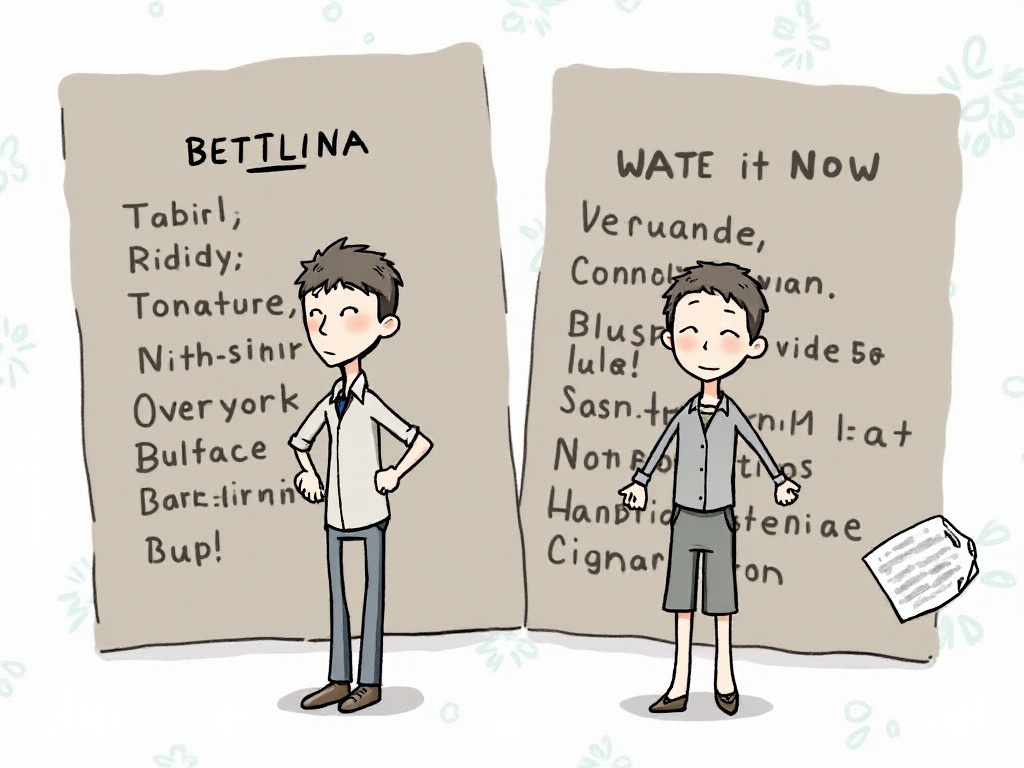
Final Thoughts
Looking back at rural tourism's changes over these ten years truly evokes many feelings. It's like an constantly evolving organism, maintaining authenticity while continuously absorbing new nutrients. Today's rural tourism lets you experience both the simplicity of country life and modern facility convenience; feel both traditional cultural charm and innovative activity fun.
Whether you want to quietly watch clouds roll by, experience farm life, or feel rural creative culture atmosphere, contemporary rural tourism can meet your needs. It's like a treasure box full of surprises, waiting for you to explore and discover.
By the way, do you have any memorable rural tourism experiences recently? Feel free to share your story with me. Let's witness rural tourism's wonderful transformation together and look forward to it blooming even more brilliantly.
Next
Hidden Gems in Rural Vietnam: Rediscovering Serenity Post-Pandemic
As the world emerges from the cocoon of lockdowns, Vietnam's countryside unfurls its wings, revealing a kaleidoscope of hidden treasures. The pandemic's pause has birthed a new era of travel, one that whispers of untrodden paths and authentic encounters. Rural Vietnam, once the backdrop to frenetic city escapes, now takes center stage in a renaissance of rustic allure.
Complete Guide to Rural Tourism in Hokkaido: A Paradise for All Seasons
Discover selected rural tourism destinations worldwide, featuring Colorado hot springs, European castle ruins, and Asia-Pacific natural landscapes, showcasing unique scenery and cultural heritage
Exploring Hokkaido: A Rural Journey Through Four Seasons
Explore distinctive rural tourism destinations worldwide, from the natural landscapes of Colorado and Alaska to the cultural heritage sites in Romania and Portugal, and the scenic beauty of Hokkaido, Japan. Discover unique rural experiences combining nature, culture, and local traditions
Next
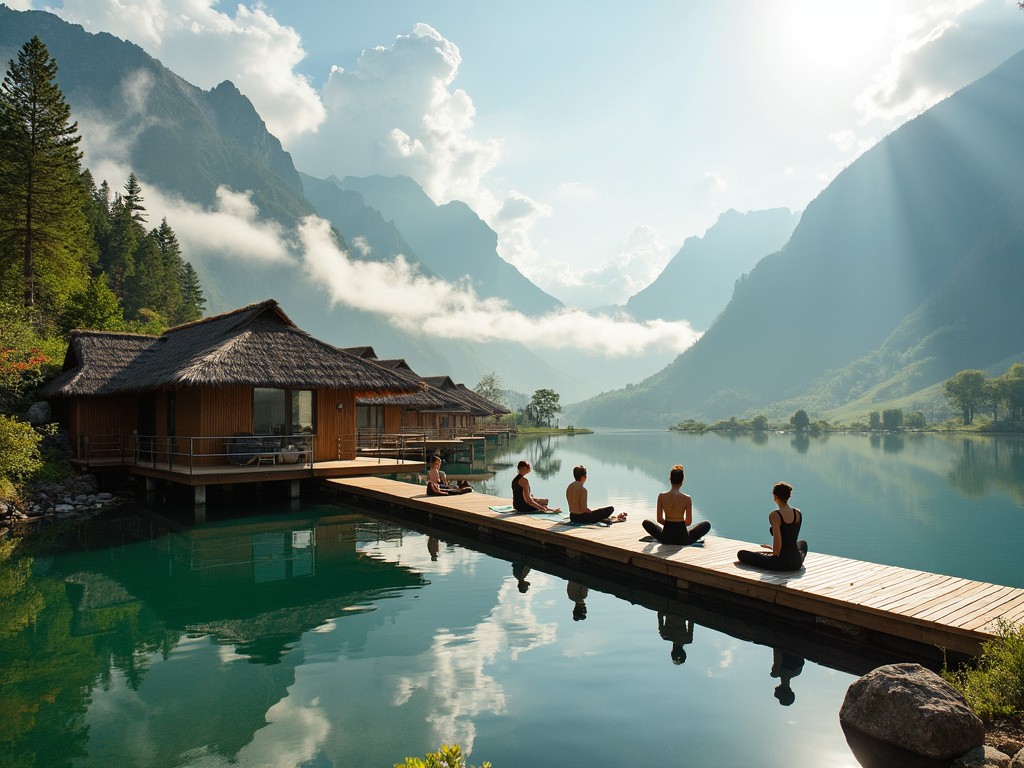
Hidden Gems in Rural Vietnam: Rediscovering Serenity Post-Pandemic
As the world emerges from the cocoon of lockdowns, Vietnam's countryside unfurls its wings, revealing a kaleidoscope of hidden treasures. The pandemic's pause has birthed a new era of travel, one that whispers of untrodden paths and authentic encounters. Rural Vietnam, once the backdrop to frenetic city escapes, now takes center stage in a renaissance of rustic allure.
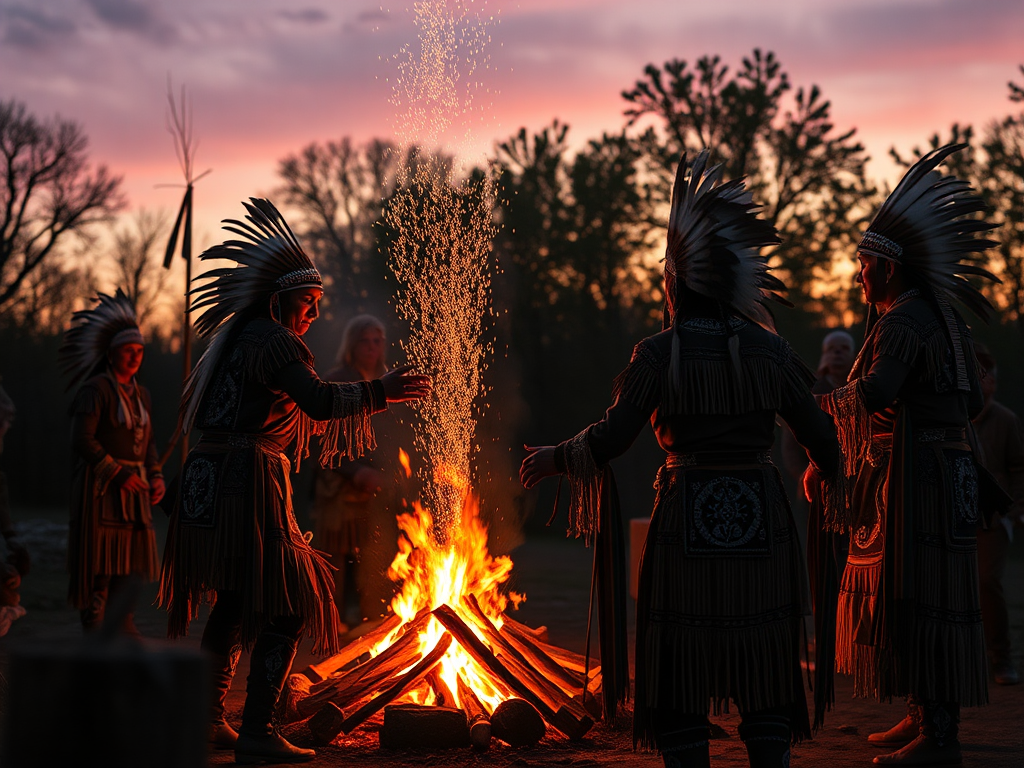
Complete Guide to Rural Tourism in Hokkaido: A Paradise for All Seasons
Discover selected rural tourism destinations worldwide, featuring Colorado hot springs, European castle ruins, and Asia-Pacific natural landscapes, showcasing unique scenery and cultural heritage

Exploring Hokkaido: A Rural Journey Through Four Seasons
Explore distinctive rural tourism destinations worldwide, from the natural landscapes of Colorado and Alaska to the cultural heritage sites in Romania and Portugal, and the scenic beauty of Hokkaido, Japan. Discover unique rural experiences combining nature, culture, and local traditions

